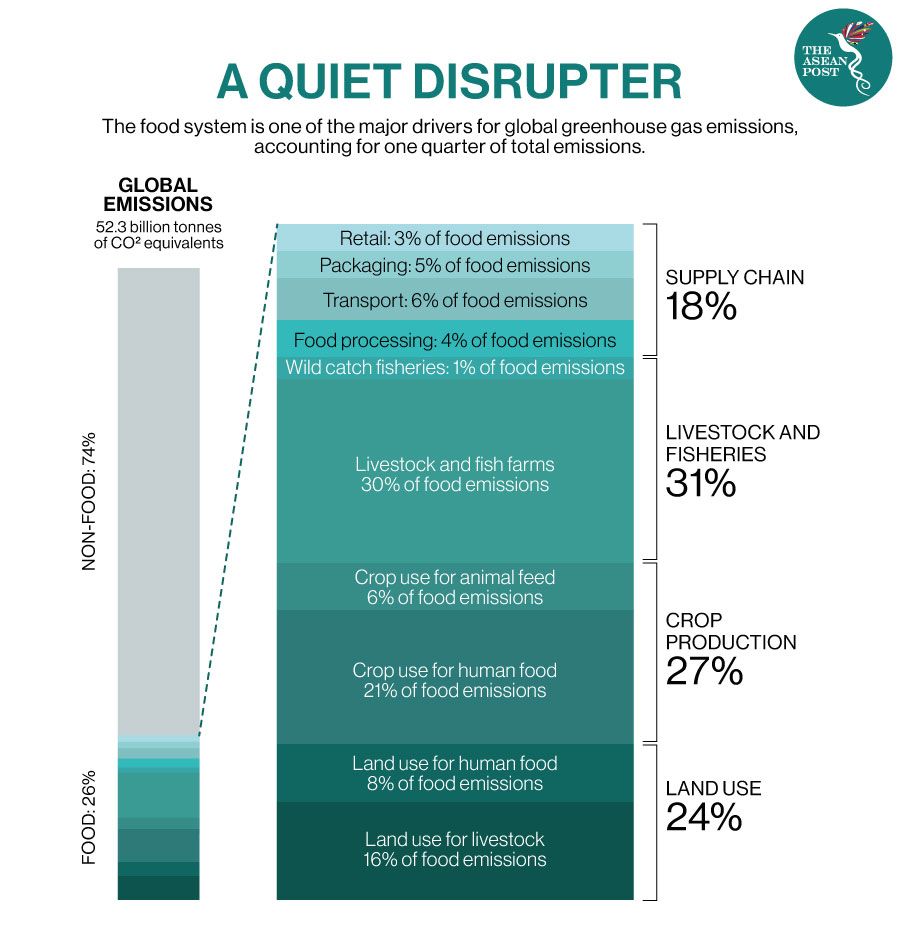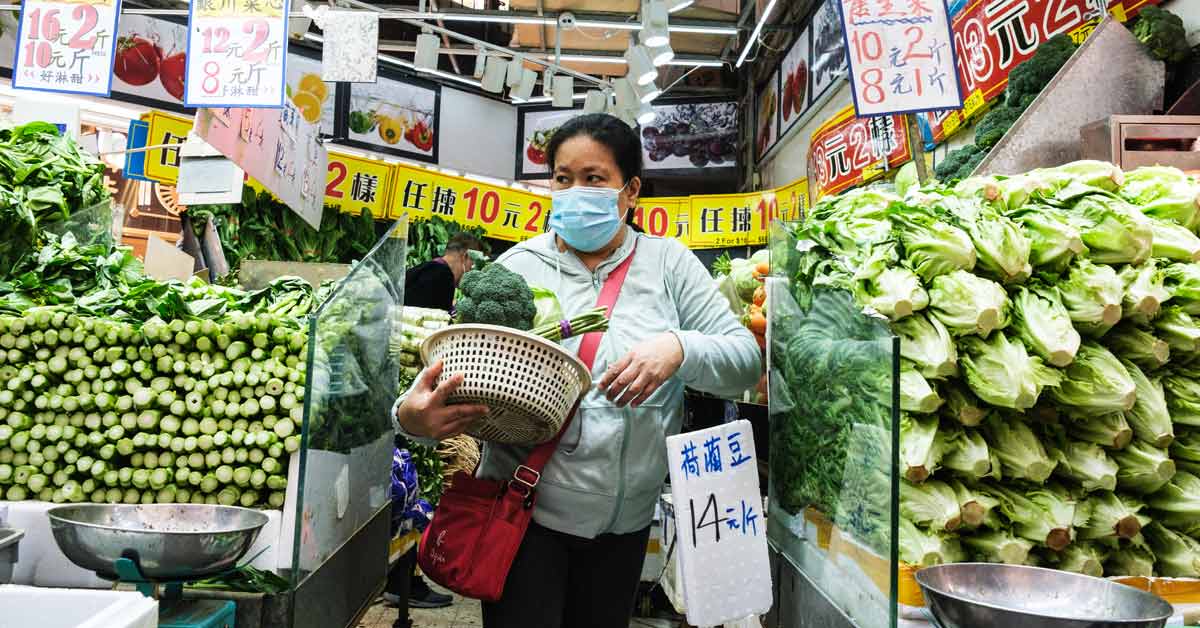It is no secret that we all need to eat healthy for the betterment of our lives. However, we also need to eat more sustainably because food production exacts an enormous toll on our planet.
Our food system is one of the major drivers of global greenhouse gas (GHG) emissions, accounting for one-quarter of total emissions – emitting some 21 to 37 percent of all GHG a year. It is as polluting as sectors that generate electricity and heat (25 percent of GHG emitted), and more polluting than transportation (14 percent) and buildings and energy use (16 percent).
An increase in atmospheric concentrations of GHG is responsible for the greenhouse effect, which ultimately leads to global warming.
Fortunately, there are a few measures that we can take to help slash global emissions such as by eating less meat and reducing food waste. The World Wide Fund for Nature (WWF) states that food waste and meat consumption are big contributors to global warming, with food waste producing between eight and 10 percent, and livestock 14.5 percent of global emissions.

A 2019 report published by the Intergovernmental Panel on Climate Change (IPCC), projected a grim future if humans don’t reduce their impact on the climate. The United Nations (UN) agency stated that the consequences of climate change such as extreme temperatures and intense downpours, are disrupting our food production systems in ways that impact yields. As the world’s population is rapidly growing – with an expected 10 billion mouths to feed by 2050 – this could trigger a global food crisis.
Nevertheless, the IPCC stated that changing our diets could contribute 20 percent of the effort needed to keep global temperatures from rising two degrees Celsius above pre-industrial levels.
"Balanced diets, featuring plant-based foods ... and animal-sourced food produced in resilient, sustainable and low- (greenhouse gas) emission systems, present major opportunities for adaptation and mitigation while generating significant co-benefits in terms of human health," the IPCC report reads.
Sujatha Bergen, director of health campaigns at the Natural Resources Defense Council's Health and Food Division also shared the same sentiment, saying that “a cut in the consumption of climate-intensive foods like red meat can help save the planet.”
Tips From WWF
Across the world, forests have been devastated to make space to rear cattle and to grow crops to feed livestock. Farming animals for meat and dairy requires not only space, but huge amounts of feed and water. This becomes a threat to our water supply as animal farming uses 70 percent of the water available to humans.
Moreover, cows and sheep also release large volumes of methane, which is 30 times more potent as a heat-trapping gas. According to the WWF, the livestock industry alone generates nearly 15 percent of all man-made GHG emissions.
Therefore, incorporating and prioritising plants in our diets and moderating our intake of animal products is a crucial step in eating sustainably.
Nevertheless, eating more varieties of food is just as important.
An estimated 75 percent of the global food supply comes from just 12 plants and five animal species. Therefore, greater diversity in our diets is essential as the lack of variety in agriculture is both, bad for nature and a threat to food security.
Another recommendation by experts is to make responsible seafood choices. The WWF states that roughly 94 percent of fish stocks are overfished (34 percent) or maximally sustainably fished (60 percent).
“Try a diversity of species from well managed sources, eat lower in the food chain and opt for lower carbon emission seafood,” suggested the organisation.
Another challenge is food wastage. It was reported that around a third of the food produced globally gets thrown away which then poses a serious threat to the environment. There are a number of ways to cut food waste including freezing fresh foods and sharing meals to reduce leftovers.
Climate change is upon us and is a difficult issue to tackle. But perhaps by making some changes to your eating habits, you could improve your health while also doing your part to save the planet.
Related Articles:
